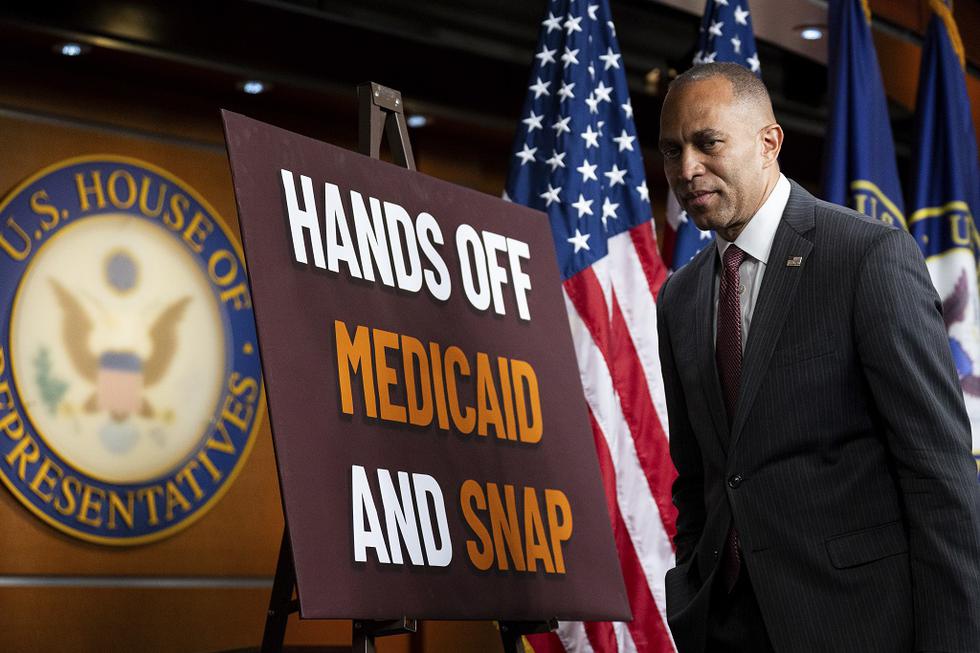Across the country, families who rely on Medicaid for healthcare and SNAP for food are speaking out — not with political slogans, but with raw, real-life anxiety. These programs were more than a safety net. They were lifelines. And now, as Congress debates deep cuts in upcoming federal budgets, millions of Americans fear they’ll lose the only help standing between them and disaster.
Proposals from the Trump administration and House Republicans aim to slash funding for key social services, including SNAP (Supplemental Nutrition Assistance Program) and Medicaid, as part of broader federal spending rollbacks. If enacted, the cuts could leave millions of low-income families, children, seniors, and people with disabilities without adequate food or medical care.
Let’s break down what’s at stake, who’s already sounding the alarm — and what you can do to prepare if you’re one of the millions affected.
What’s Happening With Medicaid and SNAP Funding?
Congress is in the middle of tense budget negotiations, with the Trump administration pushing for reduced federal spending on “entitlement” programs. That includes:
-
Medicaid, which covers over 85 million Americans — including low-income families, seniors, pregnant women, and people with disabilities
-
SNAP, which helps more than 41 million Americans put food on the table each month
Under the proposed plans:
-
States would receive less federal Medicaid funding, potentially forcing them to cut services, reduce eligibility, or eliminate optional coverage like dental and mental health
-
SNAP could face budget caps, making it harder for new applicants to qualify and threatening benefits for current recipients, especially working-age adults without dependents
These changes are part of a larger effort to rein in federal spending, but critics say it comes at a devastating human cost.
Who Is at Risk?
Nearly 1 in 4 Americans rely on Medicaid, and 1 in 8 depends on SNAP. While the programs are often portrayed as support for the unemployed, the truth is more complicated:
-
Most SNAP recipients are working — often in low-wage jobs that don’t offer benefits
-
Medicaid covers nearly half of all U.S. births and pays for two-thirds of nursing home care
-
Millions of people on Medicaid are children, seniors, or adults with serious disabilities

The cuts would likely hit:
-
Working-class families living paycheck to paycheck
-
People with chronic illnesses or disabilities who need ongoing treatment
-
Seniors on fixed incomes already struggling with rising costs
-
Children in low-income households, especially in rural or underserved areas
For these families, losing benefits isn’t a political issue — it’s a matter of survival.
Real Stories, Real Impact
Take Lisa, a 34-year-old single mom in Ohio. She works full-time but earns barely above minimum wage. SNAP helps feed her two kids, and Medicaid covers her son’s asthma treatment.
“If they take that away,” she says, “I don’t know how we’d make it. We’re not lazy. We’re trying. But things are expensive.”
Or consider James, a retired veteran in Florida living on Social Security. Medicaid covers his diabetes medication and doctor visits. “I served my country. Now I just want to stay healthy. I don’t know what I’d do without it.”
These are the voices behind the numbers — and they’re growing louder as the threat becomes real.
What You Can Do Right Now
If you rely on SNAP or Medicaid, here’s how to prepare:
-
Stay informed: Watch for updates from your state’s health and human services departments
-
Update your information: Make sure your address, income, and household size are accurate to avoid issues if eligibility rules change
-
Call your representatives: Let your elected officials know how these programs impact your life
-
Connect with local aid: Food banks, health clinics, and nonprofits may offer support if your benefits are disrupted
-
Look into appeal rights: If you’re cut off, you may have the right to challenge the decision or request a hearing
Bottom Line
The proposed funding cuts to Medicaid and SNAP are more than just numbers in a congressional budget — they’re a direct threat to millions of real people who depend on these programs every day. For families already stretched to the limit, losing access to food or healthcare could lead to spiraling hardship.
This fight isn’t over yet. Congress still has time to negotiate — and public pressure could play a major role in shaping what happens next.


